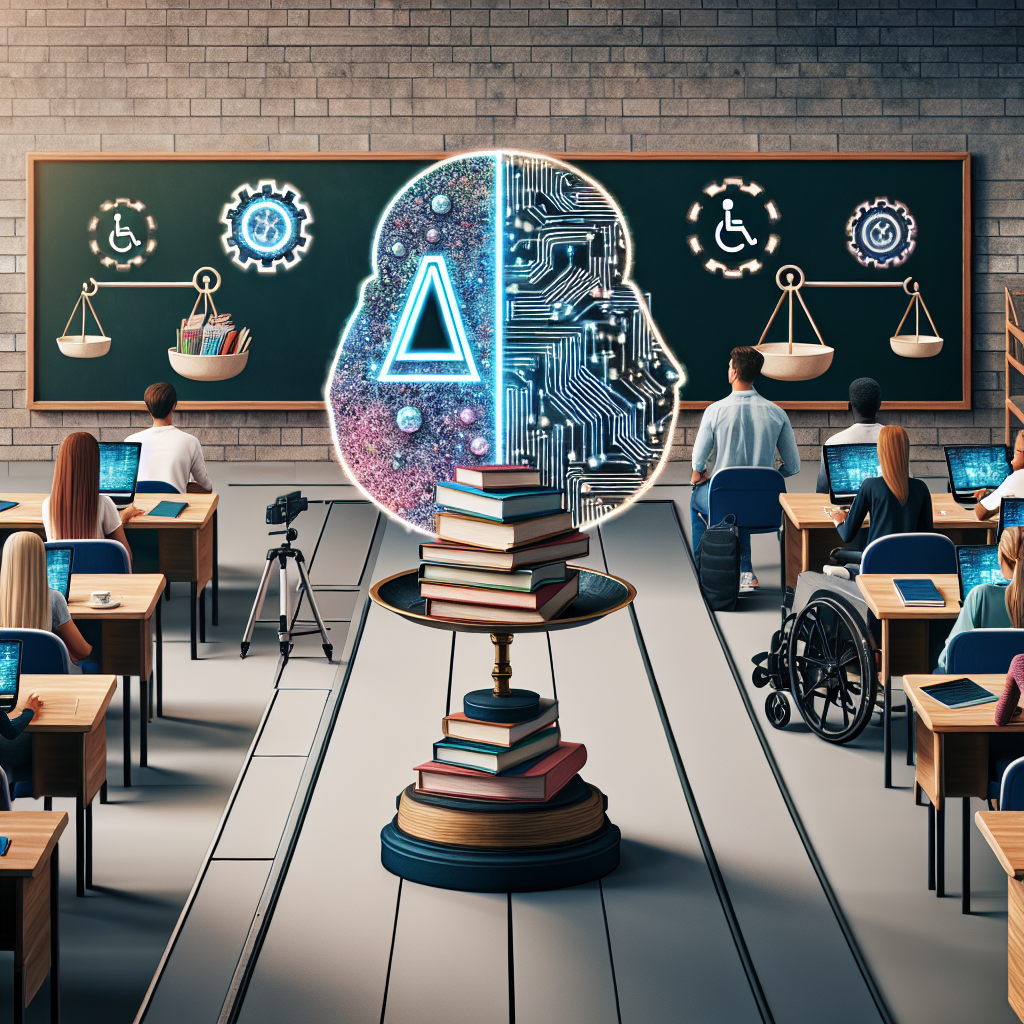Artificial Intelligence (AI) has been making waves in various industries, and its impact on education is no exception. From personalized learning experiences to increased accessibility, AI is revolutionizing the way we teach and learn. In this article, we will explore the ways in which AI is enhancing learning outcomes and improving accessibility in education.
Enhancing Learning Outcomes
One of the key benefits of AI in education is its ability to personalize learning experiences for students. Traditional education systems often follow a one-size-fits-all approach, where every student is expected to learn at the same pace and in the same way. However, AI can analyze data on each student’s learning habits, preferences, and strengths to create individualized learning paths. This means that students can learn at their own pace, in a way that suits their unique learning style, leading to better retention and understanding of the material.
AI can also provide real-time feedback to students, allowing them to track their progress and make adjustments as needed. This immediate feedback helps students to identify areas where they may be struggling and provides suggestions for improvement. Teachers can also benefit from AI-powered tools that can analyze student data and provide insights into their performance, allowing them to tailor their teaching strategies to meet the needs of each student.
Another way in which AI is enhancing learning outcomes is through the use of virtual tutors and assistants. These AI-powered tools can provide additional support to students outside of the classroom, answering questions, providing explanations, and offering guidance on assignments. Virtual tutors can also adapt to each student’s learning pace and style, ensuring that they receive the help they need when they need it.
Overall, AI is helping to create a more personalized and engaging learning experience for students, leading to improved learning outcomes and a deeper understanding of the material.
Improving Accessibility
In addition to enhancing learning outcomes, AI is also improving accessibility in education. One of the biggest challenges in education is ensuring that all students have equal access to quality education, regardless of their background or circumstances. AI is helping to bridge this gap by providing tools and resources that can be accessed by students from anywhere, at any time.
For example, AI-powered platforms can offer online courses and resources that are accessible to students around the world. This means that students in remote areas or with limited access to traditional education can still benefit from high-quality learning materials. AI can also provide support for students with disabilities, such as speech recognition tools for students with hearing impairments or text-to-speech software for students with visual impairments.
AI is also making education more affordable and accessible through the use of adaptive learning technologies. These technologies can adjust the difficulty level of assignments and assessments based on each student’s performance, ensuring that students are challenged but not overwhelmed. Adaptive learning platforms can also provide additional support for struggling students, helping them to catch up and succeed in their studies.
Overall, AI is breaking down barriers to education and making learning more accessible to students from all walks of life. By providing personalized learning experiences and adaptive support, AI is helping to ensure that all students have the opportunity to reach their full potential.
FAQs
Q: How does AI personalize learning experiences for students?
A: AI can analyze data on each student’s learning habits, preferences, and strengths to create individualized learning paths. This means that students can learn at their own pace, in a way that suits their unique learning style, leading to better retention and understanding of the material.
Q: How can AI provide real-time feedback to students?
A: AI-powered tools can provide real-time feedback to students, allowing them to track their progress and make adjustments as needed. This immediate feedback helps students to identify areas where they may be struggling and provides suggestions for improvement.
Q: How does AI improve accessibility in education?
A: AI is improving accessibility in education by providing tools and resources that can be accessed by students from anywhere, at any time. AI-powered platforms offer online courses and resources that are accessible to students around the world, ensuring that all students have equal access to quality education.
Q: How can AI help students with disabilities?
A: AI can provide support for students with disabilities through the use of tools such as speech recognition software for students with hearing impairments and text-to-speech software for students with visual impairments. AI is helping to ensure that all students, regardless of their abilities, have equal access to education.
In conclusion, AI is revolutionizing education by enhancing learning outcomes and improving accessibility for students. By providing personalized learning experiences, real-time feedback, and adaptive support, AI is helping to create a more inclusive and engaging learning environment. As AI continues to evolve, we can expect to see even more innovations in education that will benefit students of all backgrounds and abilities.

